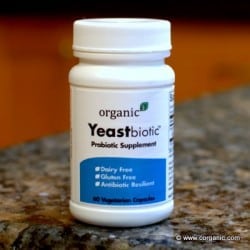
I was invited back on the radio as a guest of The Wellness Workshop with Celeste and Phil Davis (courtesy of Community Minded Radio, KITCFM.com) to share my most frequently asked thyroid-related questions from clients. Below are highlights from tonight’s show. Please be sure to also check out Thyroid 101: The Basics You Need to Know!
1. Should I still be taking vitamin D now that it’s summer?
Most people know that regular sun exposure is important for healthy vitamin D levels. If someone has a vitamin D deficiency, it’s normal to wonder whether getting sun exposure on a daily basis will be enough to raise vitamin D levels. If someone has low or suboptimal levels of vitamin D they should ask their doctor about supplementation with vitamin D3 and the appropriate dose.
a) Optimal health requires more sun exposure than people are typically getting. A lot of folks are extremely fearful of the sun believing it is a cancer-causing ball of fire and either avoid it altogether or use a sunscreen that completely blocks the possibility to absorb sunlight in order to make any vitamin D. Also, many of the sunscreens on the market today actually have chemicals in them that are as cancer-causing as too much sun is. Also, a body depleted or low in vitamin D is also a good environment for cancer. I am not advocating anything silly like staying out in the sun all day unexposed – however, an hour or two in the very early morning or late afternoon hours without sunscreen does wonders for someone like me with autoimmune disease. You see, I have celiac too and I don’t absorb nutrients as efficiently as I need to. As for sun exposure, I prefer early morning at 8:00 am for about an hour and then I’m done. I take coconut oil by mouth every day and I use it on my skin. Coconut is a natural sunscreen, but it does allow some degree of rays to be absorbed into the skin. I use to always sunburn . . . since using coconut oil internally and externally, I never burn. You may opt to simply expose hands and/or feet 20 minutes or so per day in the sun, without sunscreen when the rays aren’t as intense; however, the more skin that is exposed results in a greater amount of vitamin D that will be produced in the body. We don’t need to tan our skin in order to synthesize vitamin D but if most of the skin isn’t exposed then this will affect the amount of vitamin D produced. One reason this is of note is because many people will take a walk outside for 30 minutes or longer each day and as a result believe they’re vitamin D levels are adequate. But if most of their body is covered with clothing or sunscreen during this time then they won’t get sufficient exposure to sunlight.
b) Vitamin D levels don’t always go up just because you’re in the sun. Aging is a factor because with getting older the mechanisms to make vitamin D is reduced. How close you are to the sun in terms of latitude and seasons both affect your ability to synthesize vitamin D3 in the body. Another factor that is important is air pollution because if it is “thick,” it can block enough of the suns rays to prevent vitamin D production in your body. This is why testing vitamin D levels throughout the year is important. Make sure your doctor is testing vitamin D, 25-OH, D3 which is the active form. vitamin D, 25-OH, D2 must be converted to D3.
c) Raise vitamin D levels sooner rather than later. Even if someone can get their vitamin D levels to an optimal level through sun exposure, it can take a while to do. Sun exposure is important to human health but in this day and age it is suggested more often by doctors to supplement with vitamin D3 to raise levels quickly. For people with high calcium levels (hypercalcemia), supplement with vitamin D3 can be contraindicated so be sure to talk to your doctor if this is the case before taking any vitamin D supplement.
SIDE NOTE: The optimal levels for vitamin D3 in people with autoimmune disease is 70-80 ng/mL according to functional medicine and integrative doctors.
d) Some people do well without supplementing. Fifteen to twenty minutes of sun exposure a few days per week is usually sufficient for most children However, if someone with an autoimmune thyroid condition has a vitamin D deficiency it is best to correct low levels through supplementation and check labs often (every 4 months). Since I have celiac disease and don’t absorb well, I personally use these liquid vitamin D drops to bypass the GI tract for optimal absorption. This form also contains vitamins K1 & K2 necessary in conjunction with vitamin D for bone health.
Vitamin D deficiency is important due to its role in bone health. What many people including doctors don’t always acknowledge is vitamin D’s role in immune system function. According to Osansky (2014), studies have shown an association between low vitamin D levels and developing an autoimmune disease, and while a vitamin D deficiency itself might not necessarily cause an autoimmune condition, a deficiency in this important hormone (yes, vitamin D is technically a hormone) very well might make someone more susceptible to developing an autoimmune thyroid disorder.
SIDENOTE: As a hormone, vitamin D is also responsible for making receptors on the cells specifically for receiving T3 thyroid hormone. Low vitamin D means fewer receptors, which results in less T3 entering the cell. This equates to no tangible metabolic energy for YOU, and symptoms like unrelenting fatigue, constipation, foggy-brain, weight gain, hair loss, skin issues, menstrual irregularities, bone & joint pain, headaches, depression, and more.
2) What is glutathione and why is it important in thyroid health?
a) The primary antioxidant studied in Hashimoto’s Thyroiditis medical research is glutathione (Haskell, 2011). Antioxidants quite literally and technically speaking are powerful substances that slow down the oxidation of hydrocarbons, oils, fats, etc., and thus help to check deterioration. Antioxidants are added to many products including foods, e.g. acai and dark chocolate, and soaps. Millions of chemical reactions occur in the body every second of every day as a result of the work of the cells. This means the likelihood of oxidation-reduction processes or rather oxidation will occur. Why is this important? Because oxidation changes the number of atoms as they unite with oxygen causing what is referred to in lay-terms as to “rust.” This equates to inflammation, accelerated aging, and setting up an environment for manifestation of illness or disease.
b) Glutathione has demonstrated very positive results in reducing thyroid antibodies (Ibid). The primary means of improving circulating glutathione is by providing those nutrients (precursors) the body needs to make its own glutathione.
c) Glutathione is the master antioxidant – it is also known as God’s antioxidant. Glutathione is a protein (an amino acid) produced by the liver that the body produces from cysteine, glutamic acid, selenium, and glycine. Glutathione is also found in the intestinal tract and lungs and is needed for carbohydrate metabolism and appears to exert anti-aging effects on the cardiovascular system. It cannot be bought or made, although many crafty pharmaceutical and supplement companies want us to believe glutathione can be bought and taken by mouth. The truth is, synthetic glutathione’s molecule is so large, too large actually, to be absorbed in the small intestine – not to mention it is destroyed in the stomach rendering it useless to the body. Glutathione administered by IV drip is controversial because the molecule is too large to cross the cell membrane. Some fruits contain glutathione, but this is natures way of protecting the fruit itself from free radicals. Humans were designed to synthesize their own glutathione in the liver to also fight free radicals. The good news is that we can utilize what is referred to glutathione precursors, which are specific nutrients that provide the liver with the raw materials it needs to manufacture glutathione. Here’s how to boost glutathione levels naturally:
- Non-denatured whey protein (contains a double-bond of cysteine). Review my morning smoothie for a delicious recipe!
- Glutamine (also a part of GI Revive which I also use daily; great for healing leaky gut and maintaining a healthy GI tract)
- N-Acetyl-Cysteine (NAC) has been proven to increase glutathione levels. I take 600 mg twice per day
- Selenium (in the form of selenomethionine) a trace mineral, is the premier nutrient for improving glutathione levels (2 Brazil nuts provide 200 mcg selenium, however nuts can have mold issues – so if you have autoimmune or other chronic health issues, it is best to use pure supplementation
- Note: This liposomal glutathione cream rubbed over the liver (highest part of the abdomen, upper right quadrant) can be used by the body to raise glutathione. I use it every day after showering.
d) Who typically has low glutathione levels? Those who have:
- Diabetes
- Autism
- Cardiovascular disease
- Cancer
- Autoimmune Disease
3) How long do I need to avoid gluten?
Well, that depends . . . gluten is an inflammatory protein due to its structure, so for many who have autoimmune disease, and especially thyroid or celiac disease, I can’t imagine looking forward to or wanting to consume gluten again. Having said that, many have eliminated gluten long enough to heal their gut and then reintroduced it slowly. I’ve witnessed people experience a relapse in their thyroid or other autoimmune disorder where others have not yet seen any negative side effects. I say this is playing with fire . . . if avoiding gluten has been an integral part of you being healed, why go back? The gluten-free lifestyle has opened up a new world of delicious, nutritious foods I never imagined possible. The taste or texture of something “spongy or gooey” simply doesn’t taste as good as being healthy does.
4) What labs do I need to test my thyroid and how often do I need to be tested?
Integrative doctors typically prefer to check the first (6) labs every four months in the beginning. Read Thyroid Basics 101 to learn more about testing.
5) Why is ferritin so important to the thyroid? I’m having trouble raising my lab value, please help!
Because of digestive issues or low-hydrochloric stomach acid, having inadequate levels of iron is common among thyroid patients. Usually this is discovered by doing the labs for ferritin (storage iron). Serum iron, % saturation, and total iron binding capacity (TIBC). Low levels can cause problems as people try to raise thyroid hormone, besides giving symptoms resembling those of hypothyroid if levels are low enough. Supplement with up to 150-200 mg “elemental iron” daily in tablets (less in liquid iron since it’s highly absorbable), taken with food and vitamin C – the latter to counter free radicals. Improving low levels can take 6-8 weeks. NOTE: If ferritin is high, it can point to inflammation in the body which causes iron to be thrust into storage (Bowthorpe, 2012). The optimal range for ferritin is 70-100. Other tidbits helpful to thyroid patients with low ferritin:
- Unsulphured blackstrap molasses – rich in iron, calcium & potassium. I use 1/2 tablespoon in hot water and drink it as my “coffee-like” beverage. It’s bitter like coffee and tastes great especially with a little almond milk.
- Raw cacao powder – rich in iron, fiber, & magnesium. Use this cacao powder daily in my go-to morning smoothie!
- Cooking with an iron skillet – heat during cooking will cause the iron from the skillet to leach into the food. Tomato sauce in particular is great for this purpose because it draws more iron during the cooking process.
- Bragg’s raw apple cider vinegar: boosts acid production in the stomach necessary to absorbing iron. (Most autoimmune & thyroid patients are LOW in HCL and is one reason for poor absorption of not only ferritin, but other nutrients as well). I drink it in the morning, throughout the day, and have a cup with meals (remember, to improve digestion, no more than 6 oz. of fluid with meals!).
- Ferritin – this is a highly bioavailable form often precommended by naturopathic doctors. It is the only one that got my ferritin levels up to an optimal range.
6) What if my doctor won’t order the tests I ask for?
This is unfortunate and I too was in this situation before I found my current doctor. Although I am not advocating having your own labs done to “diagnose” yourself, you can have labs drawn without a doctors order and then find someone who will work with you to get on the right track, or at a minimum, share the results with the doctor who wouldn’t order them in the first place to give him or her the chance to help you. The fact you had to take this step should be a red-flag for you to think about perhaps searching for a more open-minded doctor (See Question #10 for how to find a doctor). No one is going to care more about your health over your lifetime than you do. RNs are trained to review and interpret labs but of course are not licensed to give a medical diagnosis. There is a difference between a medical diagnosis and a nursing diagnosis. Find someone who is a RN who is also trained as a health, wellness & nutrition coach to guide and educate you about resources that may be available to you. The RN will connect you with a physician to diagnose you properly. RNs are qualified to address your concerns, provide patient education regarding lifestyle & nutrition based on your labs, and recognize any red flags in your results that may require immediate attention by a physician. Compounding pharmacists are also often an excellent resource for lab interpretation and many offer consults. Below is a list of reputable labs where you may order your own cost-effective tests:
- Life Extension Foundation : you will receive a lab requisition for LabCorp to take to your nearest drawing facility. Very affordable & turn-around time for results is 2-3 days. Results are sent to you via US mail, or email – your choice.
- Health Check USA also uses LabCorp facilities around the US at low prices. You can choose saliva for cortisol as well.
- Direct Labs offers lab packages specific for thyroid patients; however, they do not offer saliva for cortisol tests.
- My Med Lab offers saliva testing for cortisol and has special packages for readers of Stop the Thyroid Madness.
- ZRT Laboratories offers saliva & blood-spot tests for a variety of hormone panels including 24 hour saliva tests for cortisol.
7) What is the difference between Synthroid and natural desiccated thyroid hormone?
Synthroid is a synthetic form of thyroid hormone and is a T4-only hormone. T4 is not the active form of thyroid hormone usable by the body; T4 must be converted to T3 in order for the body to benefit. For some, Synthroid works well in the very beginning of thyroid disease but over the long haul, as the ability to convert becomes more challenging, it tends to lose effectiveness. One pharmaceutical manufacturer has not yet denied or confirmed whether or not Synthroid contains gluten but has confirmed cornstarch is used as a filler, which is a problem for most thyroid patients. Natural, desiccated thyroid hormone, on the other hand is made from pig thyroid glands and contains T1, T2, T3, T4, and calcitonin in ratios similar to the human thyroid. Brands such as NP Thyroid (NPT), WP Thyroid (WPT), Armour, and Naturethroid are all natural, desiccated thyroid hormone. I prefer and personally use both NPT & WPT because of the ability to absorb the tablet under the tongue, and for their fillers. NPT is in a mineral-oil base, and WPT has inulin from chicory root & medium chain glycerides from coconut as the fillers. Armour and Naturethroid both were mandated in 2008/2009 to alter their formulas, raising cellulose, and lowering dextrose, which meant poorer absorption since cellulose “binds” thyroid hormone (meaning, it ends up in the toilet). Many patients distressing & debilitating hypothyroid symptoms returned after the formulas were changed.
8) What are the main symptoms of adrenal fatigue?
Classic symptoms of adrenal fatigue include, but are not limited to:
- Fatigue
- Low blood pressure
- Dizziness upon standing
- Low blood sugar (and needing to eat often)
- Eyes sensitive to bright lights
9) Suboptimal production of cortisol is very common especially with autoimmune thyroid disease since this condition is a constant stress on the immune system. There are other causes of low cortisol production, however, including chronic infections, unremitting stress, diets lacking specific nutrients (especially protein & essential fatty acids), lack of sleep, chronic pain, & chronic inflammation to name a few. What is often assumed to be a thyroid issue or vice versa, may involve an underlying issue with the adrenals which must be confirmed or ruled out. Since the adrenals are the first organ system to support the body’s energy demands when thyroid function is low, they may reach their tipping point and “burn-out.” If this happens, administering thyroid hormone without healing the adrenals will exacerbate low cortisol AND thyroid symptoms.
10) How can I find a qualified, knowledgeable doctor for my thyroid health?
Below is a list of resources to find top functional medicine & integrative doctors:
- The Institute for Functional Medicine
- Life Extension Foundation: Innovative Doctors & Health Practitioners
- Thyroid Change.org
- Broda Barnes Website (send email inquiry to [email protected]) to find a functional endocrinologist in your locale.
- Naturopathic doctors
- Environmental Medicine doctors
- Rate MD’s Website
- American College for the Advancement for Medicine or Functional Medicine
Resources:
- Bowthorpe, J. (2012). Stop the Thyroid Madness: A Patient Revolution Against Decades of Inferior Thyroid Treatment. Fredericksburg: Texas: Laughing Grape Publishing LLC.
- Haskell, A. (2011). Hope for Hashimoto’s. Park City, Utah: Advancing Medical Care, Inc.
- Osansky, E. (2014). Can a Vitamin D Deficiency Cause An Autoimmune Thyroid Condition? Natural Endocrine Solutions. Retrieved from http://bit.ly/T5iQX4
Shannon wants to know:
Do you have a thyroid question to ask?
Please submit your question here and it may be featured on Shannon’s YouTube Q&A segment!




